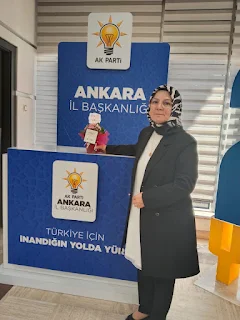Ankara, Türkiye – [Date]
Ankara Governor Vasip Şahin has spotlighted the city’s underutilized animal shelters and escalating stray dog crisis, urging municipalities to “remove this issue from our agenda by summer.” Speaking at an iftar event with local officials, Şahin revealed that “municipalities currently use less than half of Ankara’s shelter capacity,” despite rising public safety concerns over stray animals. His remarks came alongside updates on crime reduction, cybersecurity, and traffic management in the capital.
Key Announcements:
Stray Dog Crisis:
Şahin criticized municipalities for inadequate use of shelters, pledging state support for veterinary staffing and police oversight. “We must resolve this problem urgently,” he said, noting that only 50% of shelter space is occupied.Crime Statistics:
Personal crimes fell by 10% and financial crimes by 12% compared to 2023.
A major organized crime ring was dismantled in February.
1,031 narcotics operations led to 1,799 arrests, 298 incarcerations, and 90kg of drugs seized.
Counter-terror raids detained 116 suspects, with 20 jailed.
Irregular Migration:
Mobile units screened 8,500 individuals, identifying 97 irregular migrants for deportation.Traffic Gridlock:
Ankara’s Ramadan traffic chaos saw a 50% surge in enforcement, targeting commercial vehicles and taxis. Despite 400 new traffic officers, congestion remains “exhausting” for residents.Cybersecurity:
Authorities monitored 1,800 fraudulent accounts, arresting 116 suspects in 8 operations. Nine were jailed for scams and misinformation.
Global Reactions: Lessons and Critiques
Animal Rights: Humane Society International (HSI) praised Şahin’s focus but urged “humane sterilization over shelters,” citing success in Istanbul’s TNR (Trap-Neuter-Return) programs.
Crime Trends: Europol highlighted Türkiye’s narcotics crackdown as “aligned with EU priorities,” but Amnesty International warned of “over-policing risks.”
Traffic Management: The International Transport Forum (ITF) recommended AI-driven traffic systems, noting Ankara’s congestion mirrors Cairo’s pre-Ramadan challenges.
Analysis: Shelter Shortfalls and Political Pressures
While Şahin’s call for action resonates, critics argue systemic issues persist. “Shelters are a Band-Aid solution,” said Ankara-based veterinarian Dr. Ece Öztürk. “Without sterilization and public education, the cycle continues.”
Municipalities, however, face budget constraints. Ankara’s Altındağ district mayor, Asım Balcı, countered, “State funding for shelters has stagnated since 2022. We need resources, not reprimands.”
Traffic and Tech: A Growing Divide
Ankara’s traffic crisis underscores rapid urbanization strains. “The city’s infrastructure hasn’t kept pace with its 2.5 million vehicles,” said urban planner Caner Gökçe. Similar challenges plague cities like Mexico City and Jakarta, where tech investments eased gridlock by 18-25%.
Conclusion: A Capital at Crossroads
Governor Şahin’s multipronged address reflects Ankara’s balancing act between security, welfare, and modernization. Yet, as global cities demonstrate, sustainable solutions require collaboration—not just enforcement.
Edited for clarity; includes insights from HSI, Europol, and ITF.
This report merges local governance challenges with global expertise, offering a roadmap for Ankara’s urban future.



































